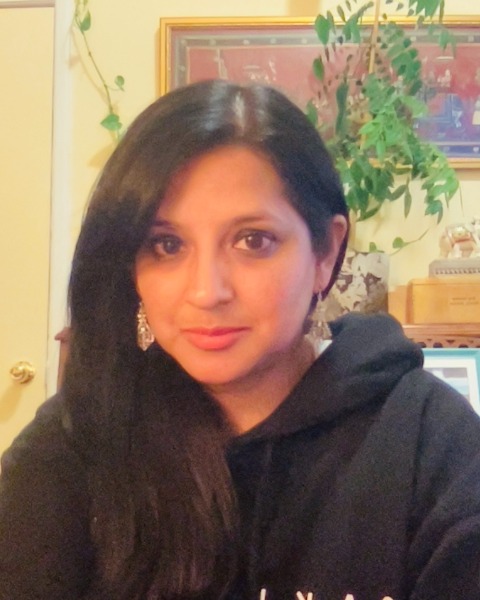Back
Islam and Muslims
Social Work with Muslims: International Perspectives
Perspectives of Mullahs/Ulamas in Khyber Pakhtunkhwa, Pakistan on Khwaja Sira (Third Gender) Identities
Sunday, November 13, 2022
10:45 AM – 11:15 AM
Location: El Capitan A

Sameena Azhar, PhD, LCSW, MPH
Assistant Professor
Fordham University
New York, New York, United States- MA
Muhammad Arshid, PhD
SEEK
- IA
Author and Presenter(s)
Contributor(s)
Co-Author and Presenter(s)
Overview: In Mingora, Khyber Pakhtunkhwa, Pakistan, mullahs (Muslim religious leaders) and ulamas (religious scholars) may influence the social inclusion of khwaja sira (third gender) communities. We conducted interviews with 30 mullahs/ulamas to: (1) understand their opinions on khwaja sira, and (2) to identify facilitators/barriers to social inclusion of khwaja sira.Proposal text: Khwaja sira constitute one of the communities of third gender or gender-nonconforming people in Pakistan. Unlike much of the Global North, communities of third gender people have historically existed, and to varying degrees been accepted, by Muslim societies in South Asia. During Moghul times, khwaja sira often served in official capacities for the royal courts, as advisors, performers, and handmaidens. Following British colonization and the criminalization of cross-dressing and public performance of song and dance through the 1871 Criminal Tribes Act and the 1876 Dramatic Performance Act , the community was driven underground, shifting to panhandling and sex work for survival. Prior to the COVID-19 pandemic, khwaja sira communities continued to earn their livelihood through these means. However, these modes of income generation have been further marginalized during the pandemic as the very nature of these activities poses some degree of COVID-19 risk. Additionally, experiences of social marginalization within the community have been exacerbated due to stay-at-home orders, limitations in movement and transportation, and restrictions on public gatherings.
In 2016 the northwestern province of Khyber Pakhtunkhwa (KP) became the first South Asian province to have a third gender rights policy. Nonetheless, khwaja sira continue to experience acute social marginalization. Mingora, Swat, KP, is a city in a region of Pakistan bordering on the eastern province of Nangarhar in Afghanistan. In Swat, the opinions of mullahs (Muslim religious leaders) and ulamas (Muslim religious scholars) are highly influential in either promoting or discouraging the greater social inclusion of marginalized communities, including khwaja sira. In coordination with the nongovernmental organization (NGO) in KP, SEEK, we conducted interviews with 30 mullahs and ulamas in Mingora, regarding khwaja sira communities. The objectives of this study were to: (1) understand the opinions of mullahs and ulamas on the khwaja sira community, and (2) to identify facilitators or barriers to the greater social inclusion of khwaja sira.
Some interview questions include: (1) In your opinion, what is the Islamic view on gender nonconformity? (2) On which passages or interpretations of the Quran, Hadith or Hanafi fiqh (the main school of Islamic jurisprudence followed in KP), do you base these opinions? (3) What are your personal beliefs regarding gender nonconformity? (4) What do you think would help or hurt the khwaja sira community from being more socially included within KP society?
Risks and benefits of research participation were explained to all participants prior to obtaining informed consent. Interviews were conducted in Pashto and were digitally audio-recorded by a research assistant based in KP. Transcripts were translated and transcribed into English. Applying thematic analysis, a research team of three coders analyzed the transcripts, using the software program Dedoose. Initial themes from the interviews will be shared in the presentation. Our research highlights the importance of infusing content in social justice, sexuality, and international social work courses on the intersection of religion and gender.
In 2016 the northwestern province of Khyber Pakhtunkhwa (KP) became the first South Asian province to have a third gender rights policy. Nonetheless, khwaja sira continue to experience acute social marginalization. Mingora, Swat, KP, is a city in a region of Pakistan bordering on the eastern province of Nangarhar in Afghanistan. In Swat, the opinions of mullahs (Muslim religious leaders) and ulamas (Muslim religious scholars) are highly influential in either promoting or discouraging the greater social inclusion of marginalized communities, including khwaja sira. In coordination with the nongovernmental organization (NGO) in KP, SEEK, we conducted interviews with 30 mullahs and ulamas in Mingora, regarding khwaja sira communities. The objectives of this study were to: (1) understand the opinions of mullahs and ulamas on the khwaja sira community, and (2) to identify facilitators or barriers to the greater social inclusion of khwaja sira.
Some interview questions include: (1) In your opinion, what is the Islamic view on gender nonconformity? (2) On which passages or interpretations of the Quran, Hadith or Hanafi fiqh (the main school of Islamic jurisprudence followed in KP), do you base these opinions? (3) What are your personal beliefs regarding gender nonconformity? (4) What do you think would help or hurt the khwaja sira community from being more socially included within KP society?
Risks and benefits of research participation were explained to all participants prior to obtaining informed consent. Interviews were conducted in Pashto and were digitally audio-recorded by a research assistant based in KP. Transcripts were translated and transcribed into English. Applying thematic analysis, a research team of three coders analyzed the transcripts, using the software program Dedoose. Initial themes from the interviews will be shared in the presentation. Our research highlights the importance of infusing content in social justice, sexuality, and international social work courses on the intersection of religion and gender.
Learning Objectives:
- To understand who khwaja sira are and what challenges they face in terms of social inclusion in Swat, Khyber Pakhtunkhwa, Pakistan
- To understand the perspectives of religious leaders (mullahs and ulamas) in Swat on khwaja sira and gender nonconformity in order to identify areas of social intervention to increase the social inclusion of khwaja sira communities in Khyber Pakhtunkhwa, Pakistan
- To highlight the importance of infusing content in social justice, sexuality, and international social work courses on the intersection of religion and gender
